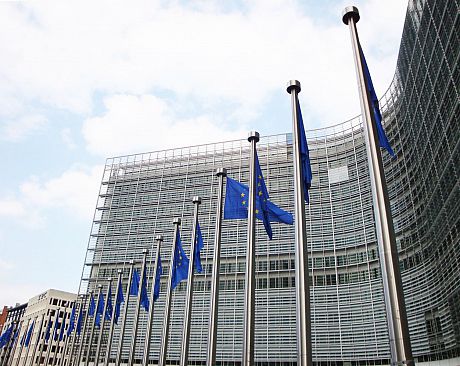Why vote? A pro-Brexit student’s view
Will Saunders is a second-year Politics student.
It’s now just a short time until a historic referendum is held, on the United Kingdom’s continued membership of the European Union. Do we stay, or do we go?
For my part, I think it’s a complex issue, with a nonetheless simple answer: we will always be better off as a self-governing country, which elects its own leaders, who are accountable to the people who voted for them, and so I will be voting to leave.
Students are seen by many in the Remain side as a vote they’ve already won.
In my view, the Brussels bureaucracy is bloated, undemocratic, overly exposed to corporate interests - and it’s become utterly impossible to reform, from the inside or out. As an electorate, we have never been more confused by who is responsible for the issues that affect us, and if we wish to hold our government to account for what happens in the future, we must seize our last chance to reinvest power in it now.

Students, with our broadly progressive and empirical views, are seen by many in the Remain side as a vote they’ve already won; we’re “in the bag”. That’s why they haven’t made any major efforts to make a positive argument to students, instead opting to focus their efforts on swing voters in the wider public. Fears remain, though, among students, about what their prospects would look like in a Britain outside the European Union, and so I’d like to dedicate this blog entry to offering a reasonably balanced rebuttal of the arguments used to corral us into voting to Remain.
First up, is the Erasmus programme. This was founded in 1987, as a means of allowing and encouraging students to gain greater awareness of the cultural diversity embedded in Europe, by providing both a framework and funding for them to spend up to a year studying, on exchange, at a university in another European country.

Remain campaigners - including our own MP, Caroline Lucas - have claimed that this will be under threat, if we vote to leave.Not true; participation of countries in the Erasmus programme is not dependent on EU membership - and if you don’t believe me, just ask Turkey, Liechtenstein, Iceland and Norway, who are all members on the same terms as the UK, France and other EU member-states, despite being independent of the EU themselves. You’ll still be able to study abroad, wherever you wish - and, having just returned from a term abroad in Canada myself, I encourage anyone reading this to take up this fantastic and unique opportunity.
It was our country which practically wrote the book on human rights and civil liberties.
Another argument commonly made is that leaving the EU will curtail our human rights. Again, however, there is very little reason to believe this to be the case. First of all, it was our country which practically wrote the book on human rights and civil liberties; last year saw the 800th anniversary of the Magna Carta, one of the earliest and most groundbreaking legal documents to enshrine basic human rights, whilst our establishment of the right of habeas corpus dates back even earlier than that.
More recently, we passed into law the Human Rights Act of 1998, a piece of legislation which establishes a domestic-law basis for the body of the European Convention on Human Rights, a 1950 agreement which we were party to, and which is a completely separate entity from the European Union; it will still be in force in the United Kingdom, whichever way we vote.

Make sure you give this decision the time and consideration it truly deserves - and make sure you vote.
This provides a neat segue into another point to clear up on this issue: oversight of the UK court system by the European Court of Human Rights is also entirely independent of our membership of the EU, and this, also, will continue whichever way we vote, as will our status as signatories to the 1948 UN Declaration of Human Rights. The only court whose jurisdiction we will be leaving is the European Court of Justice, which, despite its name, rules only on matters of EU law, which are largely business-related, and nothing to do with human rights.
So, there you have it. A few hard facts to consider when weighing up the arguments offered to students. Most importantly, though, make sure you give this decision the time and consideration it truly deserves - and make sure you vote. As I’ve stated above, it is my belief that we should leave, as our democracy is too important to be traded away - but this is democracy in action, and it’s only legitimate if people put an ‘X’ in a box on polling day.
Register to vote, and come rain or shine, march down to that polling booth on Thursday 23rd June, because whilst it’s a once-in-a-lifetime vote, the ripples of its impact will be felt for many future lifetimes to come, and you deserve a say.



